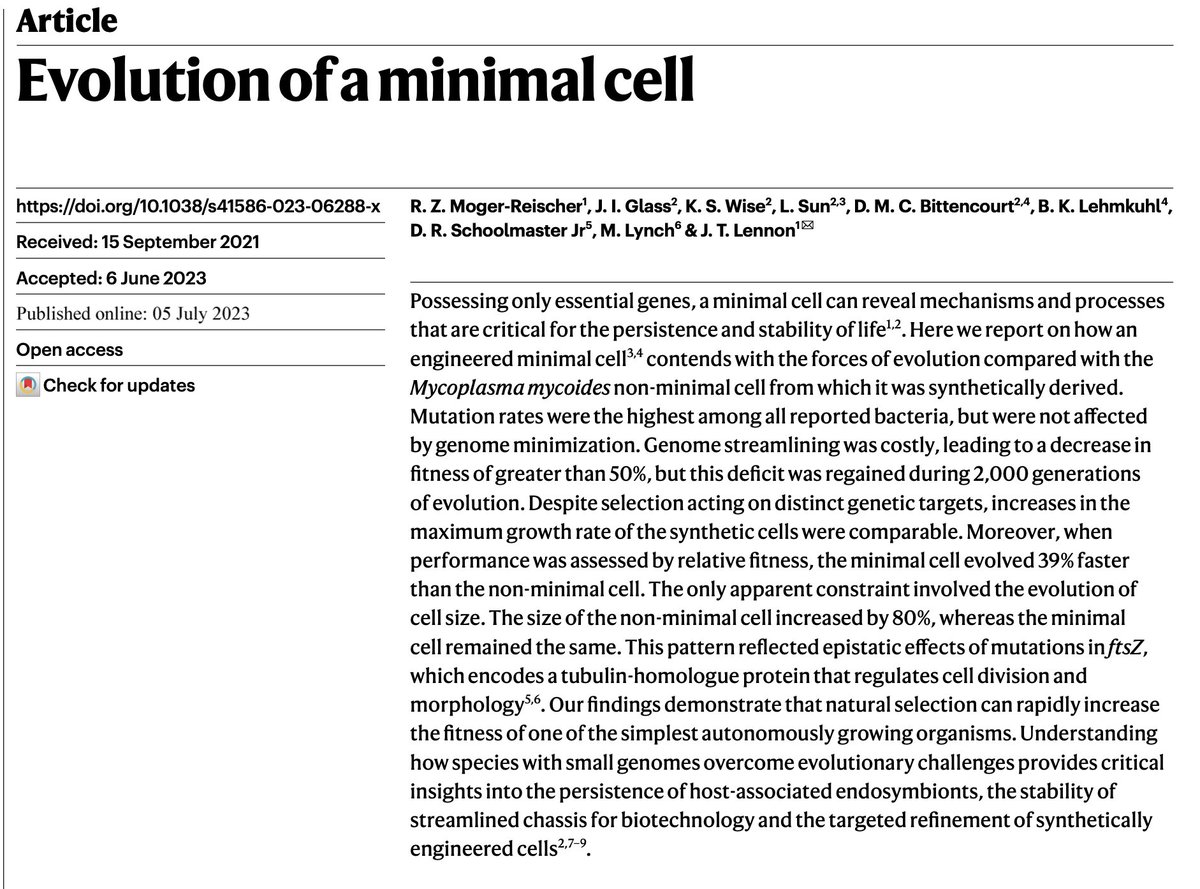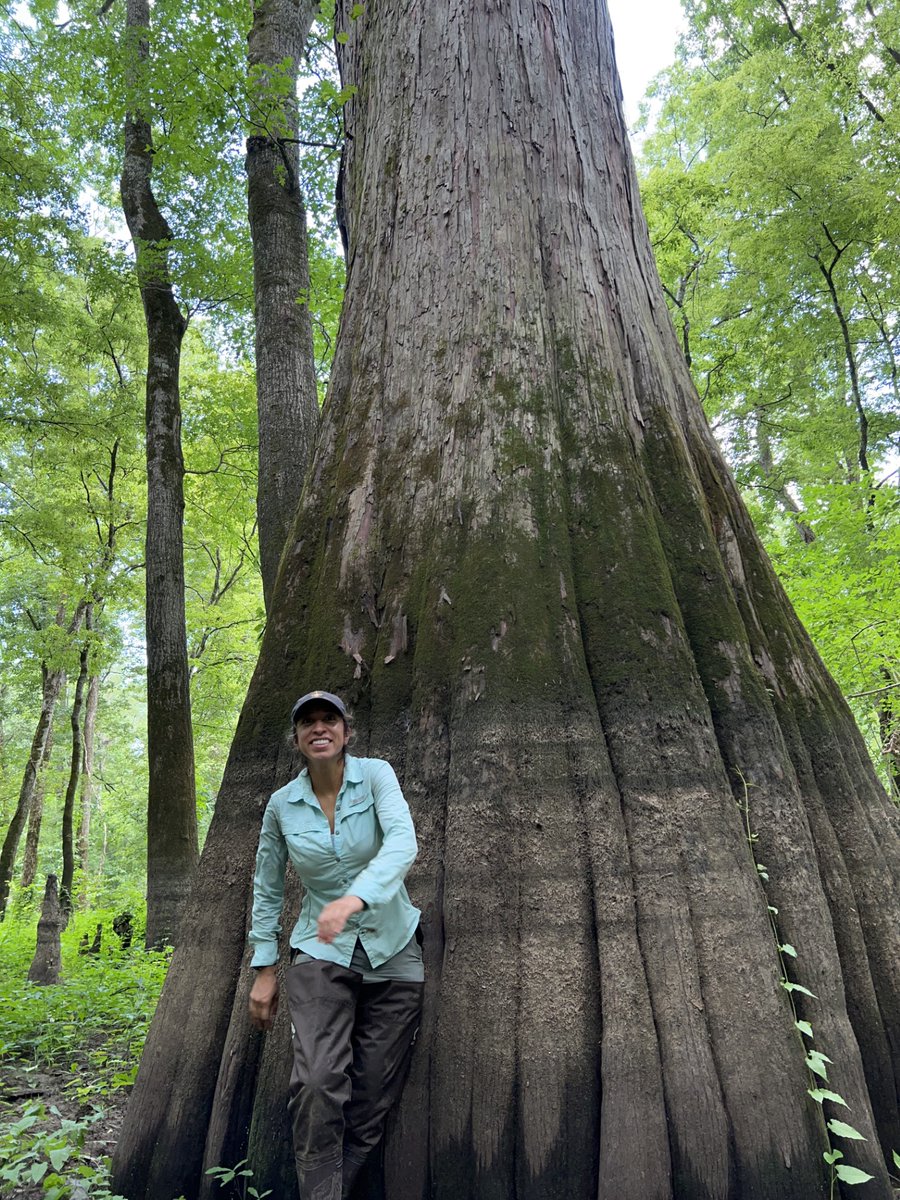
Melinda Martinez, PhD
@wetland_melinda
Followers
598
Following
7K
Statuses
1K
Aspiring to be a functional adult with some knowledge in wetland science |🇲🇽|U.S. Geological Survey Mendenhall Postdoc | IG: wetland_melinda | she/ella
Lafayette, LA
Joined September 2011
RT @laurafeher4: ✨New paper in @Nature today! ✨ "Widespread retreat of coastal habitat is likely at warming levels above 1.5 °C" https://t.…
0
2
0
My colleague/friend Don Schoolmaster (@dschoolmaster) is a co-author on this very cool paper!
A mind-blowing paper has come out today in @Nature In 2016, JC Venter Institute scientists trimmed a bacterial genome to its barest minimum required for life to synthesize what they called a "minimal genome" (. Today, a group of scientists from Indiana University reports how that minimal genome evolved over 2000 generations in comparison to the non-minimal genome. The authors found that even when you reduce a bacterial genome to its absolute minimum where every nucleotide matters, the genome undergoes mutational events generation after generation as much as the non-minimal genome. One simply cannot stop the evolution. Just over 300 days of evolution (equivalent to 40,000 years in humans) the minimal cell has gained everything it lacked in fitness on day one in comparison to the non-minimal cell. When comparing the evolved traits between the minimal and non-minimal cells, the scientists found something striking. The evolutionary process increased the cell size of non-minimal cells but not that of the minimal cell. But that is not the striking part. The scientists were able to identify the key mutation that resulted in cell size evolution. And it turned out that the mutation that helped the non-minimal cells to grow bigger is the same that helped the minimal cells to stay smaller. Growing bigger had a survival advantage for non-minimal cells and not growing bigger had a survival advantage for minimal cells. So, the mutation had a context-dependent effect. This just demonstrates that the evolutionary effects on traits have no absolute direction. All that matter is what is beneficial for the organism's survival. The conclusion of the paper is metaphorically a quote from the Jurassic Park movie: “Listen, if there’s one thing the history of evolution has taught us is that life will not be contained. Life breaks free. It expands to new territories, and it crashes through barriers painfully, maybe even dangerously, but . . . life finds a way". (
0
0
1
RT @BenjaminSulman: I'm hiring a postdoc in wetland modeling, focused on process-based simulations of coastal and high-latitude wetlands i…
0
83
0
@Suyian4Science I may be able to help depending on when the presentation is or maybe for a later time.
0
0
1
It's me! 🥰
Why #wetlands? USGS #Mendenhall Fellow Melinda Martinez: I love studying wetlands because they are among the most beautiful landscapes and benefit local communities and the planet; wetlands are now seen as potential solutions to help address climate change #AmericanWetlandsMonth
0
1
9
RT @InkaCresswell: Do you know any teenage girls who are passionate about nature photography or filmmaking? I’m joining @GirlsWhoClick to…
0
195
0
RT @CERFScience: 🚨LAST CHANCE!🚨 Today, 15 May, is the last day for you to submit your abstract to #CERF2023! Get them submitted by midnight…
0
4
0
RT @JustHydroloG: Just 2 days left to submit your abstract to our session “Climate change driven impacts to wetlands across the riverine to…
0
7
0













